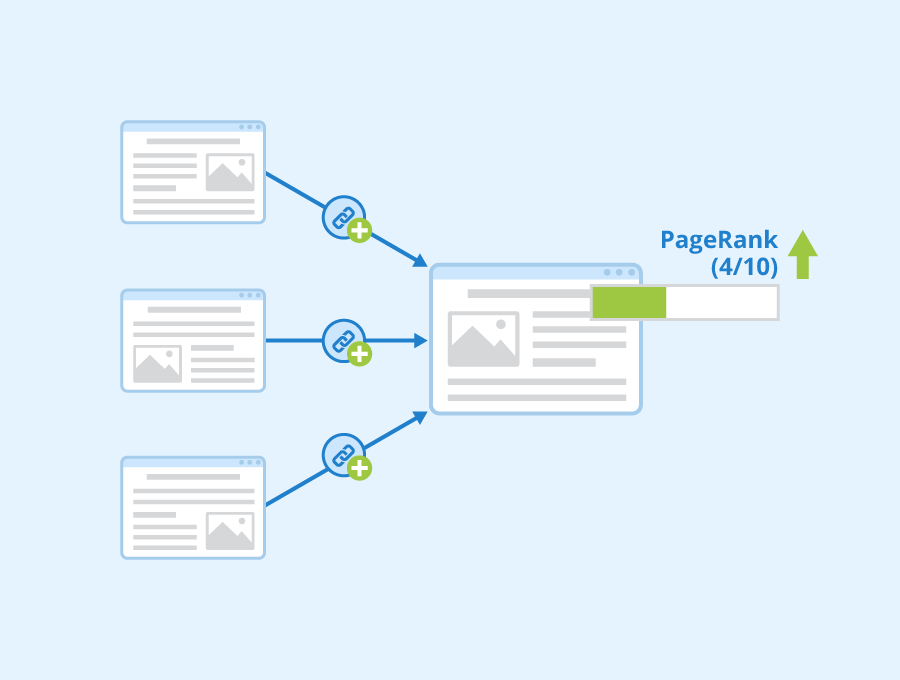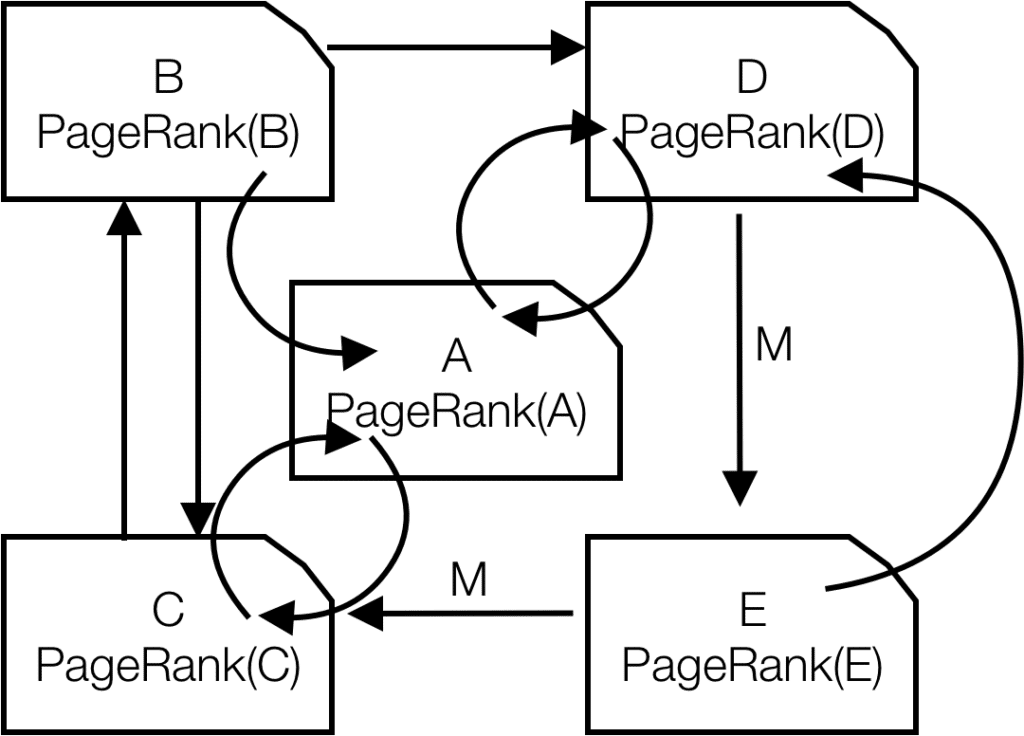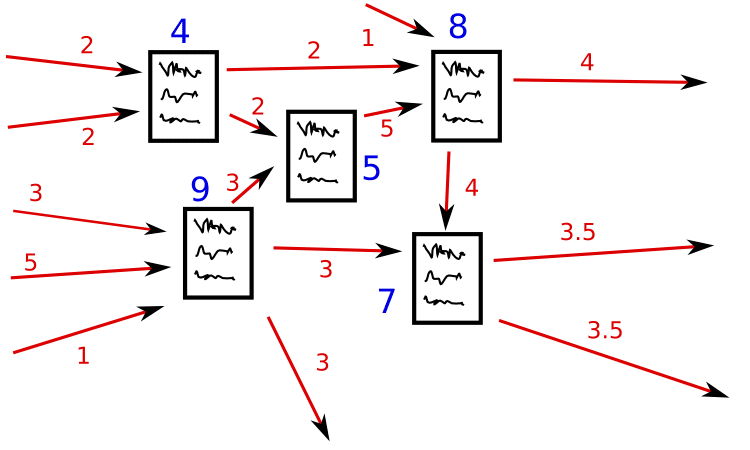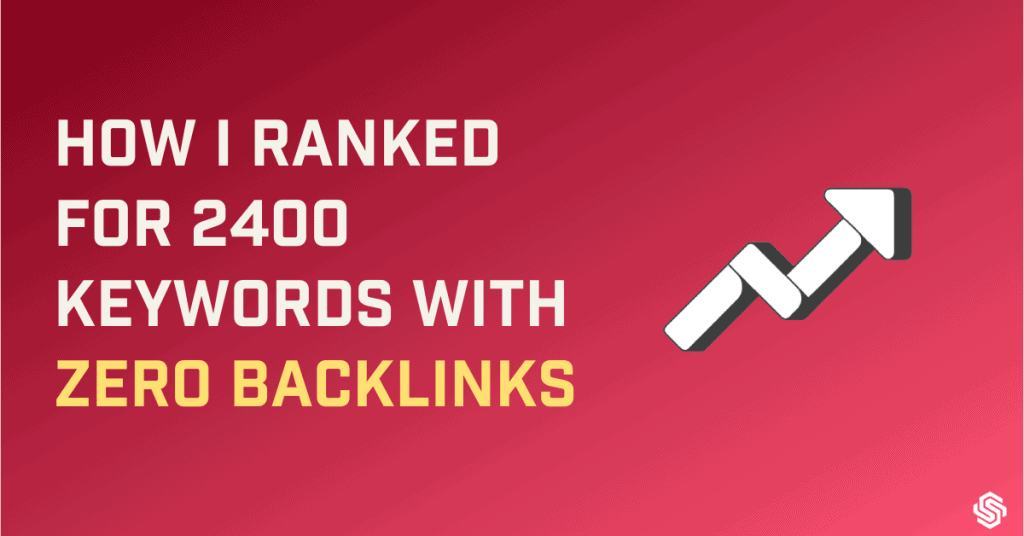
Key Takeaways for you
| – PageRank was an algorithm developed by Google in 1998 that evaluated a webpage’s relevance and importance based on the number and quality of links pointing toward it. – Before PageRank, search engines often gave irrelevant results and now, PageRank has helped Google dominate the search engine by providing quality results. – PageRank is no longer publicly available so the SEO tools use their own metrics to estimate a web page’s relevance. – It is often referred to as “link juice” because links pass authority from one webpage to another. – While PageRank may not be as widely discussed as it was in the past, it is still a relevant concept for SEO professionals. |
What would you do if you are at a party and you are looking for the most important person to talk to?
You could start with the very first person you see, but you might not have much in common, and the chances are that they won’t have much to say.
Instead, you might look for the person who is laughing and telling a story to a crowd of people.
I guess we all know every party has one crowd-puller, don’t we?
That person has something interesting and valuable to offer and as a natural reaction, the crowd gets drawn to them.
Google PageRank algorithm worked similarly in search engine optimization. It evaluated the relevance and importance of a webpage based on the number and quality of other pages linking to it.
Want to know more about Pagerank?
Then dig in and learn about the ins and outs of this algorithm and how you can use it to improve your website’s visibility and credibility.
But if Google PageRank is relevant today, why am I using past tense while referring to it?
To understand that, let me first tell you what PageRank in SEO is.
What is PageRank in SEO?

10 years back, PageRank was the much-talked Google algorithm in the field of SEO. Just as a positive doctor’s report indicates your physical well-being, A high PageRank indicated that your SEO strategy was on point.
An increase in PageRank score meant Google viewed your site as more authoritative and trustworthy than before.
Pagerank brought the focus of everyone related to websites to links as a ranking factor.
The search engine giant may have gotten the idea for PageRank from citations in academic research.
Closely following these citations in research papers, they realized that the more times other papers reference a paper, the more important and relevant it seemed to be.
And that’s how they came up with PageRank, a link-based search algorithm.
And that led Google’s Larry Page and Sergey Brin, along with other academicians at Stanford, to develop and patent PageRank in 1998.
But why PageRank became such a rage in the SEO world?
That’s because it changed the quality of search results, and Google became what it is today from a mere startup. It started to answer 4 out of 5 search queries.
Before PageRank, it was frustrating to see search engines coming up with irrelevant queries instead of relevant ones. After PageRank, online search became much easier.
The SEOs went bonkers after it as PageRank passed from one webpage to another. This means if a website with a higher PageRank score links to a website with lower authority, the latter gains more authority.
In 2000, google added a visual green toolbar to indicate the PageRank score from 0 to 10 for any webpage.
This score indicated the importance of links and showed the page’s value and potential impact. Very few people were doing SEO back then, so the competition was low.
But soon SEOs started buying and selling links to rank higher, and Google decided to end link spamming. It soon became an SEO gimmick and overshadowed important factors like great content and amazing user experience.
This abuse of PageRank by SEOs forced Google to remove the PageRank toolbar in 2016.
Today, no one talks about PageRank; some even claim it doesn’t exist anymore.
Nevertheless, I would like to assure you that it is not the case, and PageRank has just vanished from the public eye. SEOs do not talk about it now because they simply cannot measure it anymore.
How does PageRank work?
The first PageRank Patent was filed on 1 September 1998. It expired in 2018 and was never renewed after that. During this time, a former Google employee revealed that the search engine giant had stopped using the algorithm in 2006.
Are you thinking that I am contradicting my previous statement?
The answer is No since PageRank is very much alive today.
The previous patent has been replaced with a new one.
The initial PageRank relied heavily on volumes of links.
The new patent focused on other factors like position and trustworthiness.
In simple terms, PageRank was based on the theory that links from one website to another is nothing but vote showing trust and authority.
Accordingly, more links pointing to a website raised its trust and rank.
Mind it, PageRank is passed page to page, not just site to site and every webpage on your site will have different PageRanks.
When you link your website pages to one another, they will pass their PageRank to each other.
This passing authority from one webpage to another is also referred to by SEOs as “link juice.”
Today, Google uses web crawlers that scan and index pages and then rate them using an algorithm that is based on over 200 factors. PageRank is one of these factors and is no longer the sole factor.
What is its importance in SEO?
PageRank is still very much important, and the same has been confirmed by Google’s Gary Illyes in his tweet.
“DYK that after 18 years we’re still using PageRank (and 100s of other signals) in ranking?… Wanna know how it works? http://infolab.stanford.edu/~backrub/google.html…”
The tweet clarifies all doubts about PageRank’s existence.
And I would again say that understanding it is essential for you to improve your site’s SEO many-fold.
How to check the PageRank of a website?
As Google no longer publishes its PageRank data publicly, different online SEO tools use their own PageRank matrics.
For example, MOZ’s substitute for PageRank is called PageAuthority, while Ahref’s substitute is called URL rating. At the same time, Majestic’s metrics are called Citation Flow, and Semrush has an “Authority Score.”
You can use any of these tools to gauge the PageRank of your site.
How to improve the PageRank of your Website?

From the discussion so far, you must have understood that trust and authority are the keys to improving your site’s PageRank. To achieve that, check these tips:
Don’t forget that content is king
However cliche this may sound, the quality of your content will make or break your site. Quality content targeting the right users will definitely boost your site’s traffic. Excellent quality of content, in turn, will improve your relevancy and authority.
Focus on your site’s structure
A strong website structure and information architecture is the key to boosting your site’s SEO.
Suppose users and Google crawlers find it hard to navigate your site. In that case, your site’s rankings are going to plummet.
Update your content regularly
Crawlers are in search of new and updated content, so if you want your web pages to get searched more often, keep updating your content regularly.
Optimize your content for Google
For Google-friendly content, check these tips:
- Of course, you need to create awesome content that keeps your users glued to it from the beginning till the end.
- Include structured data everywhere on your site. Structured data aim to give specific information about a web page to make it eligible to be added as a rich result to SERPs.
- Don’t make your titles extra long, as it might hurt your SEO and also may turn off your readers. Also, your title needs to be unique and attractive.
- The meta description gives the reader a glimpse of what lies ahead. So make it unique and interesting to attract their attention and make them read further.
Optimize your site’s internal links
Of course, you need to take care of the links. You must use them strategically and check that all links are working and there is no duplication.
Don’t forget about users’ experience
Users’ experience and how they intersect with a particular page is essential to improve your page rank. The site’s mobile-friendliness, how much time it takes to load, browsing cashes, and script handling are some of the vital points that you need to check regularly.
Final thoughts:
I hope I have answered all your queries about PageRank and its relevance for SEO.
I am sure you must have realized by now that links are not the prime factors to achieving a high Google rank anymore, and you need to focus on creating unique content and delivering what you have promised to your users.
The Google crawlers are super advanced, and they are always in search of relevant and authoritative content that is easy to navigate and fantastic to read.
Let me know your thoughts in the comment section.
FAQs
Is a higher PageRank better?
Higher PageRank gives more authority to a web page. But there are more than 200 other factors that impact your webpage’s rank.
What is a good PageRank score?
Different tools that tell you about your web page’s page rank use different metrics. So the score may vary from tool to tool.
What type of algorithm is PageRank?
PageRank is a link analysis algorithm.
Who creates PageRank?
Initially, Larry Page introduced this algorithm. Google used it to rank web pages. Today, there are different tools and app like Samrush’s “Authority Score,” Majestics’ “Citation Flow,” Ahrefs’s “URL Rating,” and MOJ’s “Page Authority” that tells you about your web page’s page rank.
What is the relationship between PageRank and SEO?
PageRank is a Google algorithm that measures the importance and relevance of web pages, based on various factors. SEO aims to improve a website’s visibility on the net.
The higher a website’s PageRank, the better its chances of ranking well on search engines.
Is Google PageRank still relevant?
Yes, PageRank is still relevant but it is not the only factor to rank high in SERPs. It is one of the 200+ factors that Google considers while ranking a page.


